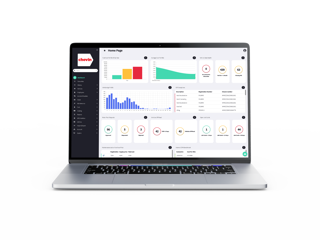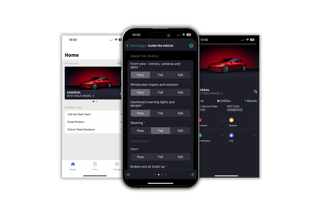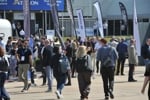Fleets are becoming more involved in measuring key metrics about workforces as they capture increasing amounts of mobile data, according to Chevin.
This information can have a direct impact on the performance of an organisation, from the number of employees currently available to hours worked.
Ashley Sowerby (pictured), managing director, said that the trend was developing where there was a proactive attitude to data capture, notably on commercial vehicle fleets, with the lines blurring between traditional fleet software andenterprise resource planning (business process management software that allows an organisation to use a system of integrated applications to manage the business and automate many back office functions related to technology, services and human resources).
He said: “On a van fleet, a driver might use a mobile device to clock on and clock off, record interactions during the day, and even automatically calculate their mileage.
“If you have this happening across a fleet, you have some very interesting information about not just the efficiency of your entire mobile workforce. This could range from simple calculations about hours worked through to complex investigations into the productivity and efficiency of your employees.”
The same arguments could also be made where fleets used mobile devices to record basic informations about a fleet of sales people, Sowerby added.
“Here, you can see the hours worked overall, time spent travelling and costs incurred through company car use and measure this against sales performance.
“It allows a very direct way of looking at the productivity of your employees on an overall and on an individual basis, and is very much in line with ERP thinking.”
Sowerby added that being able to provide and analyse this information was increasingly providing fleet managers with greater corporate influence.
“We are certainly seeing situations where the vast amounts of useful data now being recorded by some fleets is helping managers increase their status."





















Login to comment
Comments
No comments have been made yet.